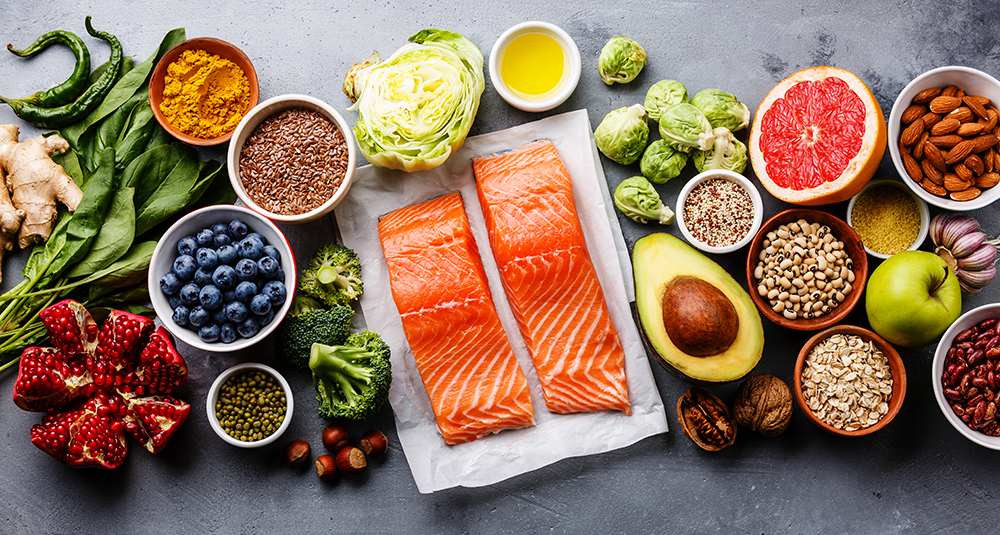
What Happens When You Eat?
The food we eat affects more than just the waistline. We know that certain nutrients have special benefits for the heart, and in general what’s good for the heart is good for the brain. But there are foods that are especially critical for brain health. For example, the omega-3 fatty acids such as docosahexaenoic acid (DHA) found in foods like salmon, mackerel, and other cold-water fish contribute to the growth, structure, and function of nerve cells. They are critical for brain development in infants and children and may stave off cognitive decline in adults. But omega-3’s are just one important part of a brain-health diet. Protein is essential for the manufacture of neurotransmitters. Vitamins C, E, and K promote cognitive function and memory. Several appetite-regulating gut hormones, including leptin and ghrelin, have been shown to have an effect on mood and emotions In short, when you eat brain-healthy foods, you feel better and your brain functions better.
What Happens When You Don’t Eat Well?
Unfortunately, the typical American diet is not optimized for brain health. Diets high in carbohydrates are known to raise blood sugar levels and lead to an increase in inflammation; research shows that inflammation acutely affects the brain through noted decreases in cognition and processing skills. Think about the “brain fog” that you might experience when you have a cold—that’s the result of temporarily increased inflammation in your body as it fights off the illness. Chronic inflammation from a poor diet leads to ongoing brain fog. There is also a well-established link between increased levels of inflammation and both mood disorders and long-term neurodegenerative diseases like Alzheimer’s disease or Parkinson’s disease. That’s why some researchers are now calling Alzheimer’s disease “Type 3 diabetes”—that’s how high the risk is for those who eat poorly.
A brain that’s in a constant state of hyperglycemia—high blood sugar—simply cannot function well. Chronically high blood glucose levels exert a negative influence on cognition, and recent studies have shown that lower HbA1C and glucose levels were associated with significantly better scores in delayed recall, learning ability, and memory consolidation. Chronic high cholesterol can accelerate the rate at which your cerebral cortex shrinks over time, and a thinner cortex is associated with weaker memory.
What to Do
There is nothing complicated about eating for better brain health, but it’s difficult to change lifelong habits. Make one small change at a time or go “cold turkey,” whatever works for you, with a goal of replacing brain-damaging foods with brain-healthy ones. Emphasize these brain-boosting foods over processed fatty food:
• Cold-water fish, including salmon and tuna, are rich sources of DHA. Splurge on caviar once in a while—it’s great for your brain.
• Fruits and vegetables in a wide range of colors: Each color has a different combination of nutrients that your brain needs.
• Whole grains and legumes
Give a pass to high fructose corn syrup and other simple sugars, which one UCLA study showed to produce a marked decline in synaptic activity in rats. Skip trans fats, saturated fats, and high-fat meats.